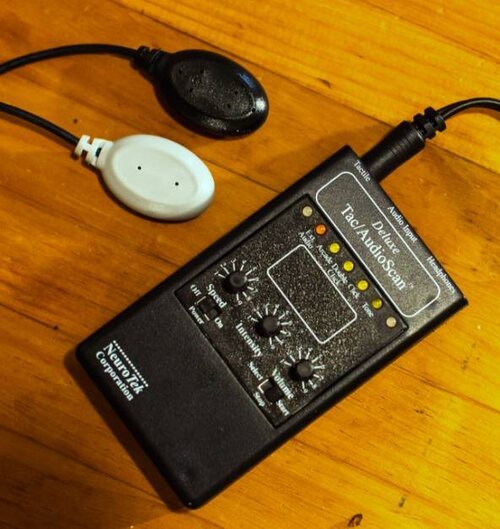EMDR Therapy in Philadelphia
& throughout Pennsylvania
How can it help me?
EMDR stands for Eye Movement Desensitization and Reprocessing. It is a type of therapy that can help you heal from past life events that impact you in the present.
A major part of this therapy is about changing perceptions. You can look back at an experience and, for example, shift from “it’s wrong to have needs” to “it’s safe/okay to ask for what I want.” It can shift those ineffective narratives about yourself that keep you feeling stuck. This therapy works at the foundational level. Shifting the understanding about yourself in the present, which can help you have more ease, flexibility, and feel more in control of your experiences.
These perception changes are interconnected on an emotional and physical level. When you clear out these less helpful views of how or who you’re “supposed to” be, it can also release the shame, blame, anger, fear, or guilt. Your body isn’t carrying the same tension, weight, constriction, etc. associated with these beliefs and emotions.
We aren’t trying to only create a “state” change (e.g. angry to calm) but a “trait” change (e.g. I’m not enough to I’m okay as I am).
How does it work?
We have a built in process to naturally recover from traumatic and distressing experiences, but sometimes this process gets disrupted. Sometimes when we experience something traumatic or distressing, our memory of the experience can get “stuck” as it was experienced. It can get frozen in time. The memory still holds the physical and emotional distress, as well as an accompanying negative belief about ourselves.
EMDR therapy taps into a natural healing process in our brains to recover from the trauma. It takes away the distress experienced and helps us to come to a more adaptive interpretation of the experience. You still have the memory, but your relationship to it changes. In short, your brain is amazing.
What will EMDR therapy be like?
After connecting and being sure EMDR is appropriate, we will work to put internal resources in place and identify external resources so that you are supported throughout the process.
We will then develop a game plan, choosing the difficult memory(ies) to target and use bilateral stimulation (i.e., eye movements, tones, vibrations, or self-tapping) until the distress of the memory has reduced and the negative belief about yourself (e.g., I’m powerless, I can’t cope) shifts to a more adaptive belief (e.g., I’m okay, I can handle it). We would also expect for the emotional and physical distress associated with the memory to decrease as well
If we’re meeting virtually, we can still utilize EMDR for reprocessing, just with some adjustments!


